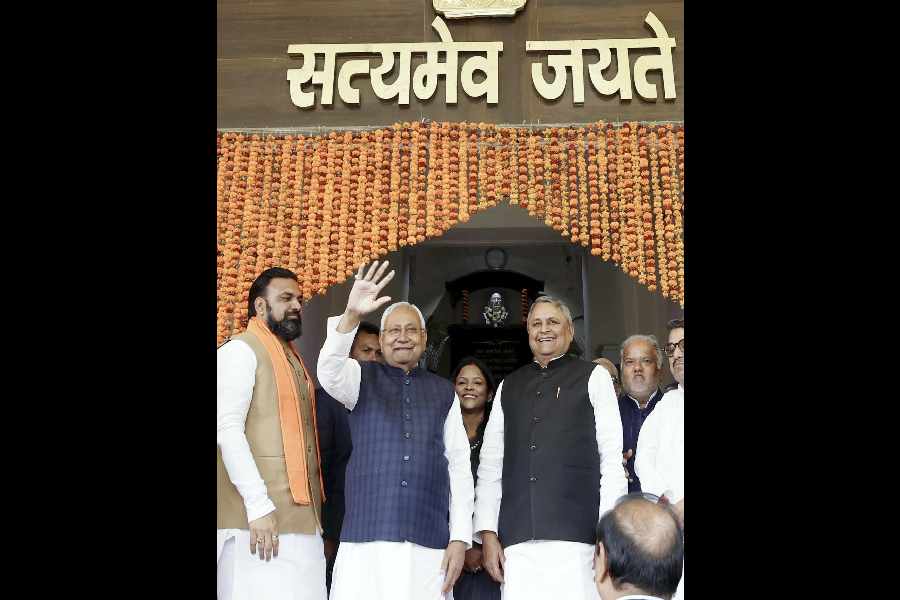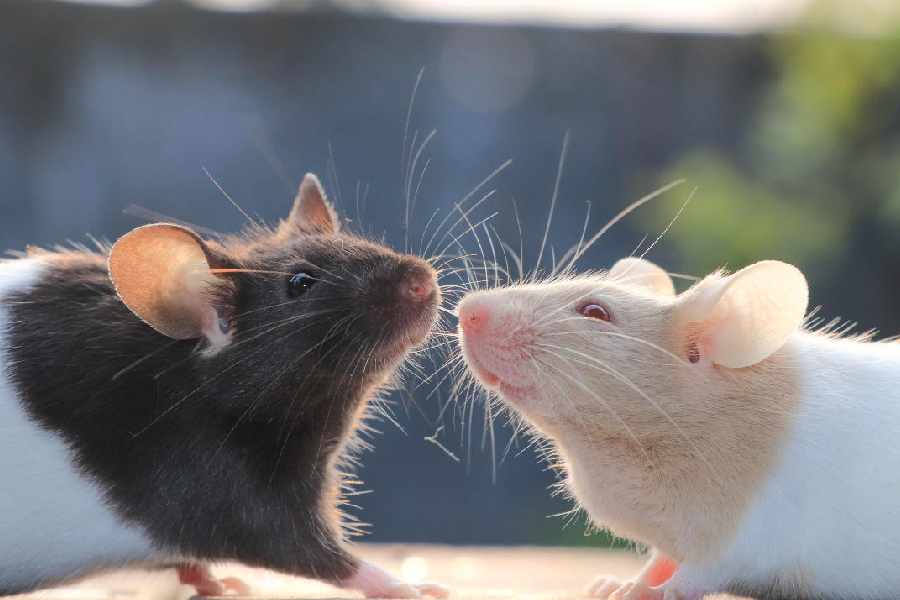Of mice and men
Sir — The earliest known experiment to trace the origins of human language was ordered by Pharaoh Psammetichus, who had two infants raised by a shepherd in isolation to see if they would develop a language on their own. While this is a legendary tale, a scientific study has made a real discovery involving the squeaks of mice. Scientists used CRISPR to edit a gene, NOVA1, in mice, giving them a human variant. This resulted in changes in their squeaks, showing how gene variations might influence communication — a small piece in the puzzle of language development.
Khokon Das,
Calcutta
Counterproductive
Sir — The announcement by the president of the United States of America, Donald Trump, that reciprocal tariffs will be imposed on countries like India and China marks a significant shift in global trade dynamics (“April tryst with Trump tariff”, Mar 6). While aiming to protect US interests, these tariffs may lead to a global trade war, hurting businesses and consumers alike. Countries like India could respond by hiking tariffs, escalating tensions. It is vital to consider the long-term effects on diplomatic and economic relations as trade wars often backfire. A more diplomatic approach would better serve international stability, fostering fair trade. To this end, it is heartening that Indian industries have informed the government that they are willing to have tariffs reduced. The minister of commerce and industry, Piyush Goyal, who is in the US should negotiate along these lines.
A.K. Sen,
Nadia
Sir — Donald Trump’s harsh criticism of India’s tariff policy overlooks the complexities of global trade. India, a developing economy, uses tariffs to protect its nascent industries from foreign competition. While the high tariffs on US products may seem unfair, they are often justified by India as a means to safeguard local jobs
and economic stability. The US must consider India’s developmental stage before implementing retaliatory tariffs. A more nuanced approach, focussing on negotiations rather than confrontation, would be beneficial.
Romana Ahmed,
Calcutta
Sir — Reciprocal tariffs by the US may be seen as an attempt to rebalance trade but it risks harming US consumers. The tariffs could drive up the prices of imported goods, especially in sectors like automobile, electronics, and agriculture. While the administration aims to protect domestic industries, the reality is that these measures will likely make everyday goods more expensive for American families. Trade policy should focus on equitable solutions that do not disproportionately burden ordinary citizens.
Sujit De,
Calcutta
Sir — The ongoing trade deficit between the US and India is a pressing issue. While it is important to address this imbalance, Donald Trump’s approach of imposing tariffs could exacerbate tensions instead of resolving them. Instead of punitive tariffs, a better strategy would involve greater collaboration and negotiations on trade practices. Addressing India’s high tariffs and trade barriers through diplomacy may lead to a more productive trade relationship between the two nations.
Bishwanath Yadav,
West Burdwan
Sir — A retaliation from the nations on which the US is planning to impose reciprocal tariffs will likely hurt American businesses. Tariffs lead to an economic cycle that benefits no one. Instead of escalating the conflict, the US should consider multilateral trade agreements that focus on fair and balanced trade practices.
H.N. Ramakrishna,
Bengaluru
Power shift

Bihar Chief Minister Nitish Kumar with Dy CM Samrat Choudhary and Speaker Nand Kishore Yadav during the first day of the Budget session of the state Assembly, in Patna, Friday, Feb. 28, 2025. PTI
Sir — The recent expansion of the council of ministers in Bihar with all the new posts going to the Bharatiya Janata Party clearly shows a shift in power equations in the state (“Power point”, Mar 5). The BJP being dependent on the Janata Dal (United) at the Centre will clearly not stop it from making an independent bid for power in Bihar. With the upcoming elections, this shift is likely to have significant repercussions for both Bihar’s political landscape and Nitish Kumar’s leadership. Despite his long tenure, Kumar’s limited options and shifting allegiances now seem to have put him at a crossroads, making it challenging for him to assert authority within the partnership.
Vartika Singh,
Patna
Sir — Nitish Kumar’s leadership in Bihar appears increasingly precarious as the BJP emerges as the senior partner in the state’s ruling alliance. After decades of political manoeuvring between the BJP and JD(U), Kumar now faces the challenge of maintaining relevance with the BJP consolidating its dominance. The BJP’s strategic induction of ministers from diverse communities reflects its long-term plan to reduce dependence on Kumar. At 74, with his career nearing its end, Kumar’s vulnerability is becoming more apparent, particularly as the 2025 assembly elections loom large in his karmabhoomi.
Subhranshu Roy,
Patna










